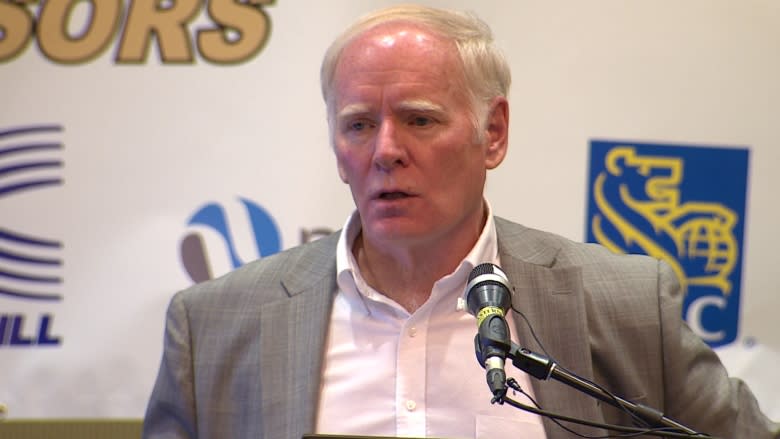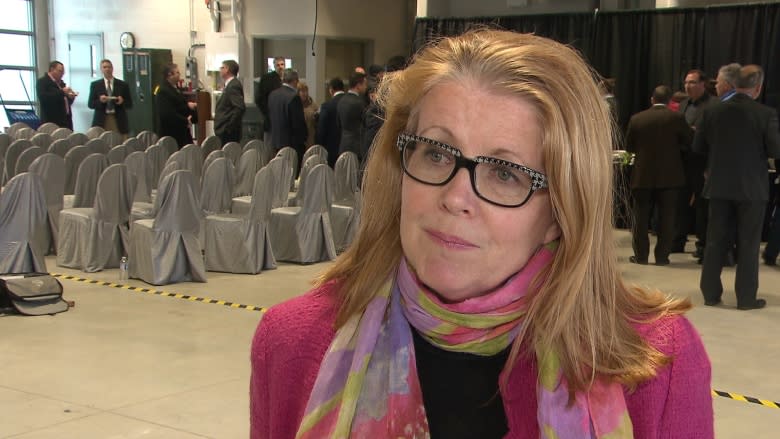Greater Moncton residents in mood to amalgamate, poll suggests
A new poll suggests a majority of people across Moncton, Riverview and Dieppe favour amalgamation, but municipal officials say the topic rarely comes up.
Between April 19 and May 4, Corporate Research Associates asked 400 adults in the three municipalities if "all things considered, do you completely support, mostly support, mostly oppose, or completely oppose the amalgamation of Dieppe, Riverview and Moncton into a single municipal unit?"
Overall, the poll found that 59 per cent of residents polled were in support of the idea, 28 per cent opposed it and seven per cent were neither. Six per cent said they did not know or did not answer the question.
Support for amalgamation, however, is far greater in Moncton and Dieppe than in Riverview, the poll suggests. Sixty-four per cent of those polled in Moncton and 65 per cent of people polled in Dieppe were mostly or completely in favour.
In Riverview, only 38 per cent of people polls said it would be a good idea to join the three communities, while half of those polled fully or partly disagreed.
The poll was not so different from one taken in November 2016.
That survey suggested 60 per cent of residents in the three communities supported amalgamation, and 27 per cent were opposed. Seven per cent did not know or did not answer. The percentage of those who remained neutral was also seven per cent.
'Surprising' results
Riverview Mayor Ann Seamans was not available for comment Thursday. A spokesperson for the City of Dieppe said in an email to CBC News that Mayor Yvon Lapierre was contacted about the CRA's previous poll in the fall of 2016.
She had found the results surprising "because it is definitely not something we hear from our residents."
Isabelle LeBlanc, director of communications for the City of Moncton, said if residents see this as a priority, "they will speak with councillors to bring it to the forefront."
Otherwise, she said, the city had no comment on the poll.
"It's a private sector survey that comes up every so often, not commissioned by the municipalities," she said.
Efficiency an issue
But Don Mills, chairman and CEO of the polling company, said amalgamation is an issue that is talked about a fair amount in the Greater Moncton area.
"Outside of media, people are wondering why the three municipalities haven't come together," he said. "There's a lot of overlap."
For example, all three municipalities have their own economic development department when they could combine them if they joined together, he said.
"A lot of people in the business community especially are wondering about the efficiencies of trying to run three separate municipalities where people are basically living in the same area," he said. "It's a very consistent topic of conversation in Moncton and it has been for a number of years."
Chamber likes collaboration
The CEO of the Greater Moncton Chamber of Commerce disagreed. Carol O'Reilly said she has heard one or two people in the community talking about amalgamation, not enough for the chamber to consider it as a viable option.
There are also differences between the communities, including the language spoken, she said. Dieppe is primarily francophone, while Riverview is anglophone, and Moncton uses both official languages.
While amalgamation has its positives, such as less red tape, the mayors of all three municipalities already collaborate on many issues. The communities also share several services, including policing, busing and the chamber, she said.
"We all work with the three municipalities," she said. "And in their uniqueness we certainly work really well with the three municipalities."
Not an anomaly
Mills said CRA decided to survey people on amalgamation again this year because the results of the first survey were surprising, and the pollster wanted to make sure they were not an anomaly.
He stressed that the polling company did not call the same group of people, and always chooses random numbers. The number of people questioned in each community, and whether they were anglophone or francophone, was proportional to the population of each community, he said.
The CRA already plans another poll on amalgamation for the new year. Results of this year's poll are accurate within 4.9 percentage points, 95 out of 100 times.




